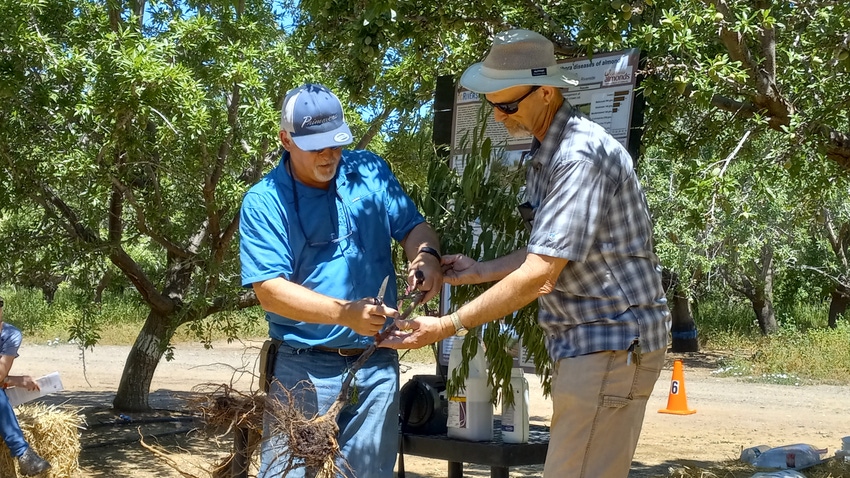
As I write about issues faced by Western farmers, the personal benefits continue to grow as I work to cover issues important to our readers.
I’ve started to joke lately with those I know in the Land Grant University system that it would be nice to have a graduate degree to hang on the wall next to my undergraduate diploma. All joking aside, I’m thankful and blessed by the willingness of the entomologists, pathologists, weed scientists, and others who are imparting graduate-level knowledge to me.
This thought started several years ago when I was interviewing an Extension adviser in almonds. He was kind enough to compliment me on my understanding of growing almonds in California. I quickly credited his willingness to answer my questions and teach me as I sought to inform my readers. He exemplifies what an Extension agent is. He’s not the only one.
Several Extension entomologists come to mind. These insect experts have helped me understand more than the bugs we were talking about, but how nature has a fascinating way of working.
For instance, I’ve learned that ants are not just problematic for humans when it comes to picnics or our kitchens at certain times of the year. They can also stymie biological control efforts to control the bad pests that, in some cases, still require insecticide treatments to protect crops and keep our food supply safe.
My fascination with agricultural journalism was piqued about 30 years ago when a former editor sent me out to talk to farmers in Tulelake, Calif., about the water they relied upon from the Klamath Basin to irrigate their crops. Several years later another editor challenged me to do a “day in the life of” story on a local dairy family. My interest in writing about agriculture was sparked and I was hooked.
I’ve avoided mentioning the names of folks who I credit with kindling this spark because I don’t want to miss the countless others who have, along the way, been responsible for critical introductions, ideas, and simply being a sounding board for things I’ve heard and learned.
Several farmers in the Turlock and Hilmar area of California are high on this list. A few of them invited me to breakfast once to ask me some questions. Yet another literally guided me by the shoulder at a private meeting once to introduce me to key industry leaders, saying nice things about me along the way.
Perhaps the largest challenge for any journalist is to have enough information on a topic to find the right experts and ask the right questions to elicit useful information. If we see our roles as providing useful information for our readers, then I would think we’re on the right path to serve those who read our stories.
About the Author(s)
You May Also Like






